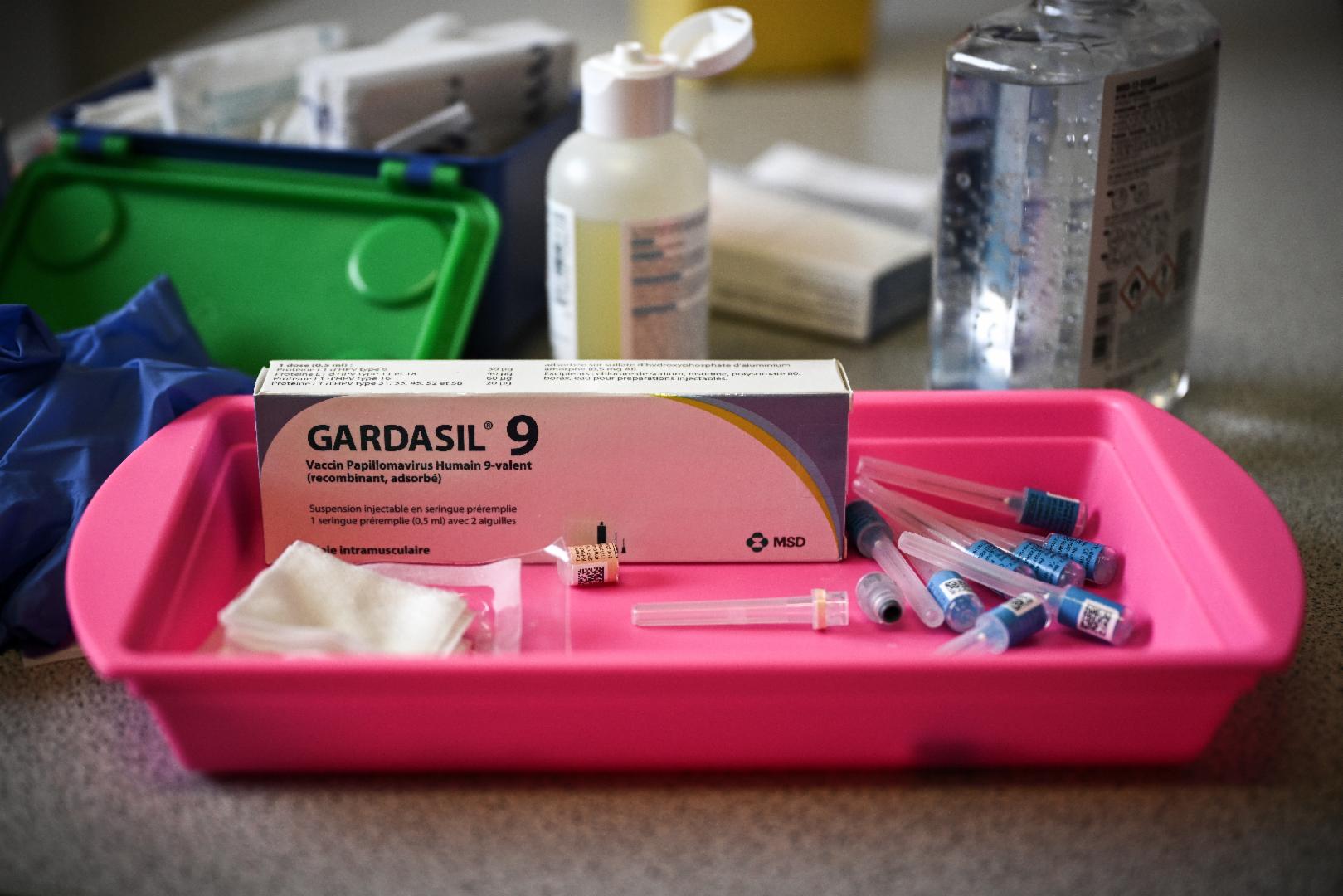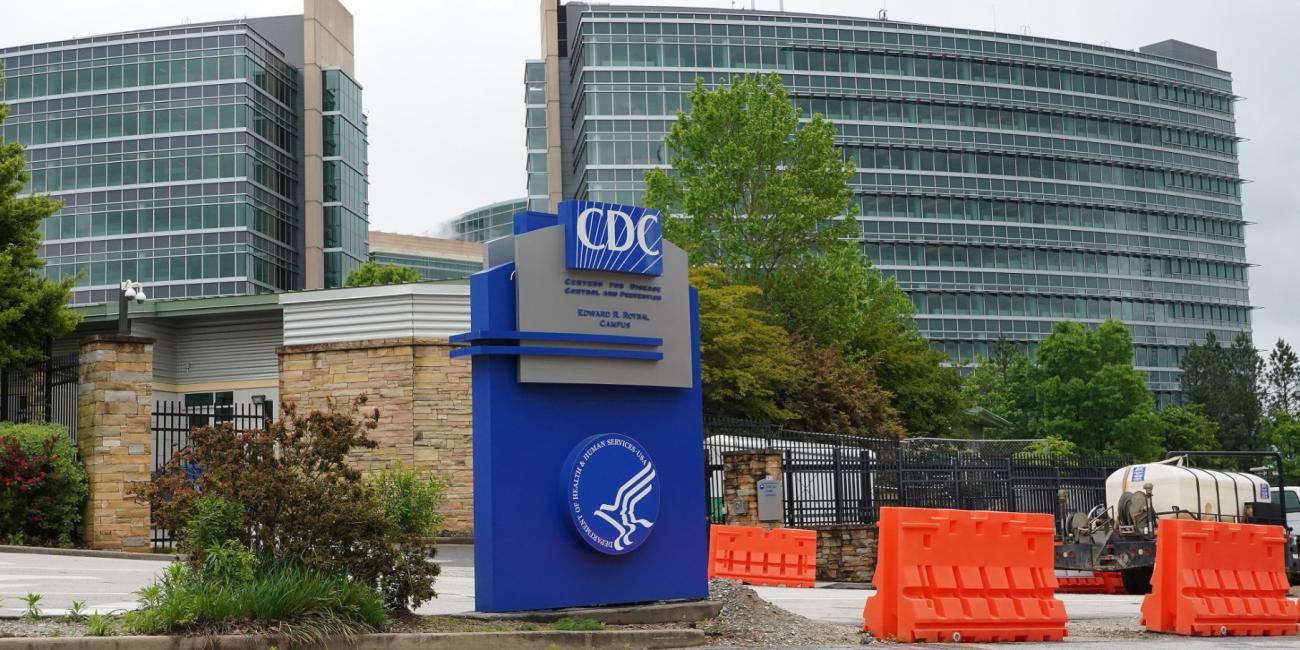
Conspiracy theories hamper Nigeria’s HPV vaccine push to fight cervical cancer
- This article is more than two years old.
- Published on November 22, 2023 at 16:04
- Updated on November 23, 2023 at 10:26
- 6 min read
- By Tonye BAKARE, AFP Nigeria
Nigeria announced in late October its plan to introduce the human papillomavirus (HPV) vaccine into its routine immunisation programme.
On October 25, 2023, Abuja-based radio host Ahmed Isah told listeners of his daily "Brekete Family Show" that the government’s cervical cancer vaccination drive may be harmful to young women who are the targets of the campaign.
The popular programme is broadcast to a live studio audience and streamed simultaneously on Facebook and YouTube. Recordings of the show are also published on both platforms. Guests frequently include top government officials.
"If you have daughters like me, if any school tells you that it wants to give your daughters cervical cancer vaccine, do not agree," Isah said in Pidgin in the presence of Nigeria's internal affairs minister Olubunmi Tunji-Ojo who had been invited to the programme.
The radio host based his opposition to the vaccines on the fact that the "United States, China, and the United Kingdom were yet to discover cures for cancer".
He also claimed the vaccine could cause sicknesses and infertility, citing Pfizer’s fatal drug trial in Kano state in northwest Nigeria in 1996 (archived here). In another episode, he alleged that the trial had killed "people in their hundreds" (archived here).
His claims made their way onto other social media platforms including TikTok.
Similar reports have also circulated on the WhatsApp messaging service. One viral voice note alleging that the vaccine drive was causing infertility prompted government government officials to issue a denial (archived here).
Another WhatsApp message attributed to Kenyan doctor Wahome Ngare said that HPV vaccines were "unnecessary" because a "simple and cheap treatment of the cervix with persistent HPV infection would prevent" cervical cancer.
The message contained a link to a YouTube video, in which a narrator claimed that a girl seen in the clip started developing neurological problems after she received the HPV vaccine.
Ngare, an obstetrician-gynaecologist, wrote a Facebook post in March that was similar to the WhatsApp message and contained the same YouTube link.
In 2019, he told a local broadcaster that the HPV vaccine was not a risk worth taking and insisted that it caused "paralysis".
Combatting cervical cancer
Caused by the Human Papilloma Virus (HPV), cervical cancer affects about 12,000 (archived here) and kills 8,000 Nigerian women annually, the country’s health minister Muhammad Ali Pate said at the launch of the vaccine drive (archived here).
The loss of more than eight thousand Nigerian women yearly from a disease that is largely preventable is completely unacceptable.
— Muhammad Ali Pate (@muhammadpate) October 24, 2023
Cervical cancer is mostly caused by the Human Papilloma Virus (HPV), and parents can avoid physical and financial pain by protecting their children… pic.twitter.com/LVqhe58d9Q
According to the World Health Organization (WHO), the vaccine prevents "HPV types 16 and 18 that are known to cause at least 70% of cervical cancers" (archived here).
Nigeria’s National Primary Health Care Development Agency (NPHCDA) administers the vaccines with support from the WHO, the Global Alliance for Vaccines and Immunization (GAVI), the United Nations Children’s Fund and other partners.
"In Nigeria, the impact of the Human Papillomavirus is sobering," said Muyi Aina, the director of NPHCDA (archived here). "Over 56 million women aged 15 and older are at risk of developing cervical cancer."
The country’s pilot vaccination aims to reach about 7.7 million girls aged nine to 14 in a five-day mass vaccination campaign across 16 states and the country’s capital city of Abuja, where Isah hosts his show. The second phase of the roll-out will start in 21 states in May 2024.
Vaccine safety
HPV vaccines have been available in Nigeria for years before the government announced its campaign. A private practice in Abuja has been offering the jab since at least 2022 (archived here).
Already, more than 100 countries have used HPV vaccines, based on WHO data (archived here).
The vaccine was also administered to schoolgirls in Lagos in southwest Nigeria in 2022 (archived here). An official of the state’s ministry of health said a few not-for-profit organisations have carried out similar campaigns in the past without any problems.
"This vaccine has been used for 16 years, even in Nigeria, but in the private sector where it is very expensive," said Abuja’s health and environment secretary Dolapo Fasawe (archived here). Fasawe spoke on Isah’s show a day after he made his claims.
NPHCDA official Bassey Okposen, who was also a guest on the same edition of the show, identified the vaccine to be used as Gardasil 9. It was approved by Nigeria's National Agency for Food and Drug Administration Control (NAFDAC) in October 2023.
NAFDAC head Moji Adeyeye warned that Nigeria, as Africa's most populous country, had one of the highest cervical cancer incidence and mortality rates on the continent (archived here).
"Data from immunogenicity trials, post-hoc analyses of efficacy trials, and post-licensure observational studies among females have demonstrated that a single dose of HPV vaccine is sufficient to elicit an immune response that provides similar protection as a multidose regimen against initial and persistent HPV infection", she said.
The vaccine brand has been in use in the United States since 2014. The Centre for Disease Control and Prevention (CDC) lists common side effects as headaches, tiredness, and a sore arm (archived here). In rare cases, severe allergic reactions can occur and potentially be life-threatening. However, infertility is not listed among the vaccine’s side effects.
Emily Kobayashi, who heads GAVI's Human Papillomavirus Programme, also refuted the claim that the vaccine causes "infertility or sickness of any kind".
"The vaccine has gone through rigorous testing and approvals, and since 2006 more than 270 million people have received it," she said.
Isah said that he made his claims after receiving messages from his audience and that he acted in the public interest (archived here).
"It is good that you have educated us," he said.
But false claims about HPV vaccines, especially Gardasil 9, are neither new nor limited to Nigeria.
In 2020, a claim that the vaccine caused a spike in cervical cancer and autoimmune disease in Australia circulated on social media. However, experts told AFP Fact Check that there was no evidence to support the claim.
Another social media post in the US claimed the vaccine was dangerous because it contained aluminium and polysorbate 80. In reality, it only featured small doses of those compounds and was certified for human use.
African depopulation conspiracies
Isah’s claim that the vaccination drive was part of a plan by the Bill and Melinda Gates Foundation to kill off Nigerians is also not new.
Billionaire philanthropist Bill Gates is a favourite target of conspiracy theorists.
At the height of the Covid-19 pandemic, he was accused of wanting to depopulate the world (archived here).
Shortly after his visit to Nigeria in July 2023, a smiliar claim resurfaced on TikTok and WhatsApp (archived here).
The Gates Foundation told AFP Fact Check that Isah’s "claims are false".
Pfizer’s Kano drug trial
Contrary to Isah’s second claim, the subject of Pfizer’s tragic drug trial in Kano, northwest Nigeria, involved an unapproved antibiotic and not a vaccine.
In 1996, the American pharmaceutical firm conducted a trial for trovafloxacin without proper approval from the Nigerian government (archived here). The drug was intended for the treatment of meningococcal meningitis, which was rampant in the country's north at the time.
At least 11 children died in the trial. The families of the children argued that they could not provide informed consent for the trial because they did not speak English (archived here).
Incidents like the 1996 drug trial fuel mistrust in Western drugs and vaccine trials, according to Lagos-based public health doctor Adebola Ojo.
"Vaccines are quite effective in reducing the spread of diseases. But all possible side effects must be publicly disclosed to those taking them," Ojo said.
November 23, 2023 Fixes a typo in the lead.
Copyright © AFP 2017-2026. Any commercial use of this content requires a subscription. Click here to find out more.
Is there content that you would like AFP to fact-check? Get in touch.
Contact us




